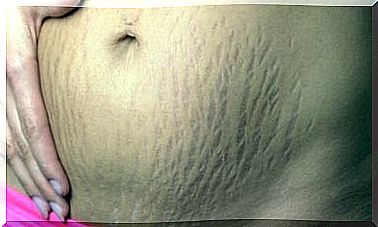Sleep Disorders During Adolescence

Sleep disturbances during adolescence are usually quite frequent, mainly because the hours of rest needed by the developing body are not respected. The quality of sleep influences brain maturation, which, in adolescents, is going through an essential stage.
From puberty until age 18 or 20, the brain is in a phase of creating neural networks. These changes are highly significant for future healthy development, both mentally and emotionally.
Sleep disturbances during adolescence are most commonly associated with neurological or psychiatric disorders. However, if normal sleep patterns are considered, it is observed that imbalances may be related to a simple lack of healthy habits.
A sum of nights without adequate rest will likely end up causing a sleep deficit. This, in turn, affects adolescents and makes it more difficult to concentrate and study, in addition to a decline in social relationships and mood.
Physiological processes during sleep
It is possible to distinguish five phases of sleep which, in turn, are repeated cyclically. Phases 1 and 2 are actually transitions between wakefulness and sleep. At this point, the body begins to slow down its heart rate and breathing, as well as its body temperature and eye movements.
Phases 3 and 4 are vital for the release of growth hormones, providing deep, restful sleep. Meanwhile, phase 5 is called the REM phase, characterized by rapid eye movements. In this phase, the muscles are activated and the metabolism speeds up its pace. This is when narrative or vivid dreams occur.
Each cycle comprises a period of about three hours. In teenagers, these cycles should be repeated three to four times a night. This biological need, in turn, happens in a certain part of the day.
In teenagers, the time when the body demands rest is later than in adults and children. Also, they need more sleep in the morning.

Sleep disturbances during adolescence occur when you sleep too late in relation to the time you need to wake up the next day. Why does this problem occur and what are its possible consequences?
Why do teenagers go to bed late?
Young people often sleep late simply because they are not sleepy. A teenager’s heart rate goes through a new balance that causes him to fall asleep later at night and wake up later in the morning.
Although the ideal, depending on school schedules, would be to sleep at 9:00 pm or 10:00 pm and wake up at 6:00 am, this can be unnatural for those who are going through this phase of life. After all, the change in heart rate causes melatonin, the hormone the rest, to be produced later by around 23h.
All of this indicates that sleep disturbances during adolescence are caused by a culture that does not respect people’s vital rhythms. In this sense, in a society structured for work and consumption, the biological needs associated with health are left out of any program.
If schools were no longer mere strongholds to contain young people, forcing them to follow schedules that undermine their full development, today we would not be talking about sleep disorders or attention deficits in children and young people.

What if sleep disturbances during adolescence are chronic?
In adults, lack of sleep can cause all kinds of accidents. In fact, 50% of car accidents are caused by people under the age of 25 who have sleep disorders. More specifically, what are the organic changes caused by sleep disorders during adolescence?
The stress caused by lack of sleep increases cortisol levels. This, in turn, impairs glucose homeostasis, potentially leading to type 2 diabetes, obesity, or Cushing’s syndrome.
Other common causes of sleep disorders during adolescence:
- Insomnia.
- Reflux.
- Restless legs syndrome.
- Nightmares.
- Obstructive sleep apnea.
- Sleep-walking.
- Narcolepsy.
Prevention of sleep disorders during adolescence
When tiredness comes from bad habits in the routine, the best thing to do is to promote lasting sleep by modifying habits. Therefore, maintaining a healthy diet, playing sports daily, reducing the use of electronic screens, and reading pleasantly can help prevent sleep disturbances during adolescence.








